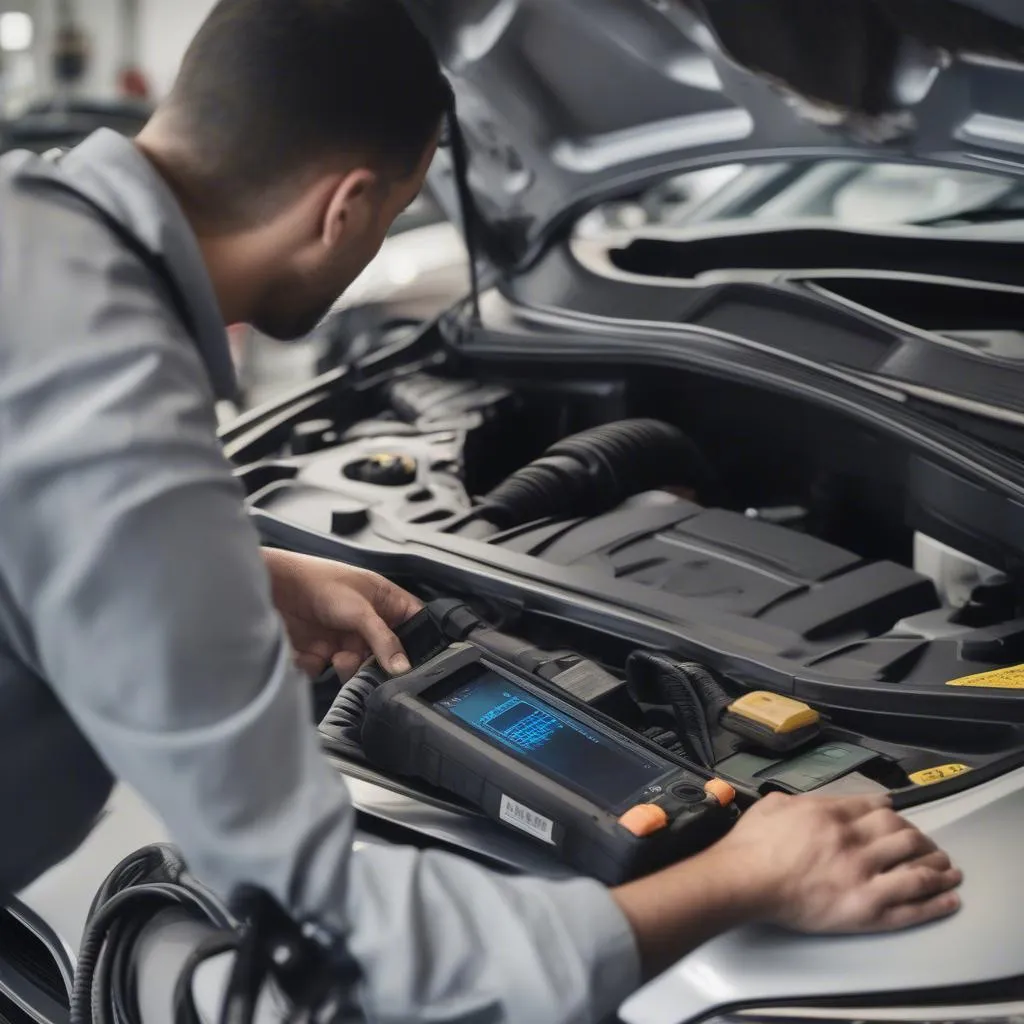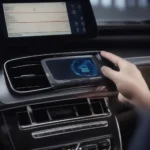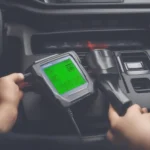Finding the best OBD2 scanner for BMW can feel like navigating a maze. With so many options available, it’s easy to get lost in technical jargon and confusing features. Whether you’re a BMW enthusiast or a professional mechanic, having the right OBD2 scanner can be a game-changer for diagnosing and troubleshooting your vehicle. This comprehensive guide will walk you through everything you need to know to make an informed decision.
Why You Need a BMW OBD2 Scanner
Modern BMWs are equipped with sophisticated computer systems that monitor and control various aspects of the vehicle’s performance. An OBD2 scanner acts as a window into these systems, allowing you to:
- Diagnose engine problems: Identify the root cause of check engine lights, misfires, or other performance issues.
- Read and clear fault codes: Understand the meaning behind those cryptic error codes and reset them after repairs.
- Monitor live data: Access real-time information about your engine’s performance, such as RPM, temperature, and fuel pressure.
- Perform advanced diagnostics: Some scanners offer coding and programming capabilities for customizations and software updates.
Types of OBD2 Scanners for BMW
Choosing the right OBD2 scanner depends on your needs and budget. Here are the most common types:
1. Basic OBD2 Scanners
These entry-level scanners are ideal for casual users who want to read and clear basic fault codes. They are typically affordable and easy to use, but may not offer advanced features or BMW-specific diagnostics.
2. Bluetooth OBD2 Scanners
These scanners connect wirelessly to your smartphone or tablet, providing a convenient and portable solution. They often come with user-friendly apps that offer a wider range of features, including live data monitoring and graphing. Best Bluetooth OBD2 scanner for BMW models can be particularly useful for their enhanced functionality and connectivity.
3. Professional OBD2 Scanners
Designed for professional mechanics and experienced DIYers, these scanners offer comprehensive diagnostic capabilities, including BMW-specific functions like coding, programming, and module resets. They often come with a higher price tag but provide unmatched functionality.
Choosing the Right Scanner for Your Needs
Consider the following factors when selecting an OBD2 scanner for your BMW:
- Your Budget: Determine how much you’re willing to spend, as prices can range from affordable to quite expensive.
- Your Skill Level: If you’re a beginner, a basic or Bluetooth scanner will suffice. Professionals may need more advanced options.
- BMW Model and Year: Ensure the scanner is compatible with your specific BMW model and year, as some scanners offer model-specific diagnostics.
- Desired Features: Determine which features are essential for your needs, such as live data monitoring, coding capabilities, or bi-directional controls.
Top Features to Look For
- BMW-Specific Diagnostics: The ability to read and clear manufacturer-specific codes is crucial for diagnosing BMW-specific issues.
- Live Data Streaming: Real-time data monitoring allows you to observe sensor readings and identify performance bottlenecks.
- Coding and Programming: Advanced scanners may offer coding capabilities for customizing vehicle settings or updating software modules.
- Bi-Directional Controls: This feature enables you to test components and actuators, aiding in pinpointing faulty parts.
- User-Friendly Interface: An intuitive interface and clear menus simplify the diagnostic process, even for beginners.
- Data Logging and Reporting: The ability to record and export data can be invaluable for tracking issues or sharing information with mechanics.
Common BMW OBD2 Codes
Understanding common BMW OBD2 codes can help you quickly identify and address potential issues:
- P0171 and P0174: Lean fuel mixture, often indicating a vacuum leak or faulty oxygen sensor.
- P0300 – P0306: Engine misfires, potentially caused by spark plugs, ignition coils, or fuel injectors.
- P0420 and P0430: Catalyst system efficiency below threshold, often suggesting a failing catalytic converter.
- P0128: Coolant Thermostat (Coolant Temperature Below Thermostat Regulating Temperature), signaling a potential thermostat issue.
- P0012: “A” Camshaft Position – Timing Over-Retarded (Bank 1), indicating a problem with the variable valve timing system.
Conclusion
Investing in the best OBD2 scanner for BMW can save you time, money, and frustration in the long run. By understanding your needs, researching available options, and focusing on key features, you can find the perfect diagnostic tool to keep your BMW running smoothly. Remember to always consult your owner’s manual or a qualified mechanic for any complex repairs or diagnostics.


